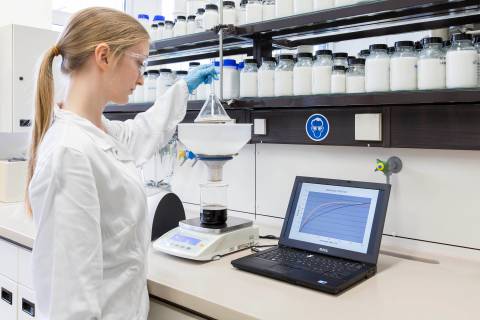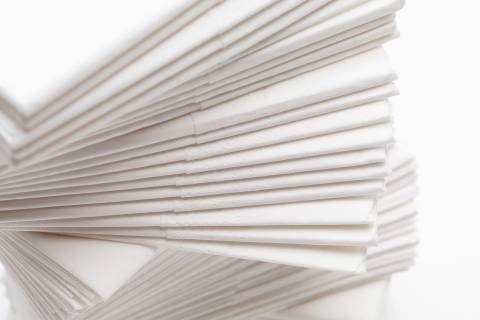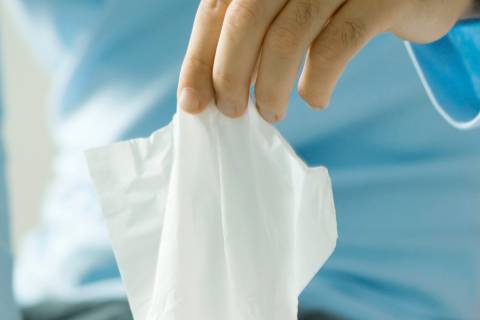Tissues and More
Silicone Makes Paper Soft and Fluffy
The coronavirus crisis is leaving more than just losers in its economic wake. Sales of some products are absolutely through the roof. Toilet paper and other types of sanitary paper products such as tissues and paper towels were frequently sold out. Suppliers of medical protective equipment and manufacturers of paper and cardboard packages also had full order books.

Silicone Defoamers for Cellulose Production
As a result, the demand for cellulose, the key raw material for paper manufacturing, increased significantly. Cellulose is either extracted from wood or from recycled paper. The best way to do this is to boil the wood chips for twelve to fifteen hours with certain chemicals, thus removing the Lignin and other unwanted wood components from the fibres. However, the process also generates natural surfactants. They create large amounts of foam which cause severe problems in the ongoing production process. Increasing foam stability and rising foam loads make it almost impossible to extract the cellulose fibers from the so-called black liquor and other by-products.

Special silicone products can help. Their defoaming and dewatering effects are due to the extraordinarily low surface tension typical of silicones. Even at very low concentrations, they destroy foam build-up and ensure that air and water can escape from the wet pulp slurry. This allows cellulose producers to generate significantly more cellulose per hour than would be possible without a defoaming agent. The silicone product in this case is purely a processing aid. The properties of the cellulose remain unaffected.
WACKER has tailored its PULPSIL® silicone defoamers to the precise needs of cellulose manufacturers. Service companies and formulators either use the formulations provided by WACKER or process them into ready-to-use defoaming agents. PULPSIL® defoamers are state of the art. They are highly effective, leave no residues on the cellulose and improve the efficiency of the production process. As a result, manufacturers are not only able to reduce the amount of water and energy needed, but can also lower the amount of chemicals used for bleaching the cellulose in the final steps of the production process.

Sanitary Paper is Made Particularly Soft by Silicone Treatment
Once delivered to the paper factory, the cellulose is combined with recycled paper fibers and additives to make paper. Manufacturers select the right production process and raw materials for the predefined type and quality of the paper. Downstream treatment of the paper surface also contributes to the overall impression that the paper makes on the consumer.

While toilet paper and tissues should be soft and fluffy, they should not fall apart either. At the same time, they need to be able to absorb water. Adding ingredients such as aloe vera or chamomile is often desirable as well. Paper manufacturers can combine such skin care effects with silicone softeners. WACKER offers several products which already contain these ingredients. This benefits paper manufacturers who are able to spray or roll the ingredients and the silicone softener onto the paper surface in one single step. Unlike defoaming agents, these silicone products remain on the paper, where they provide the soft hand typical of silicones.
WACKER’s silicone emulsions especially formulated for these purposes are based on modified polysiloxanes. These products are skin-friendly and reduce the surface friction of the paper without rendering it hydrophobic. The effect can be detected when even just small quantities are used. Sanitary papers made with silicones feel pleasant to the touch, even on irritated skin.
Overview

WACKER's efforts against coronavirus
Pictures

The booming mail order business during the corona crisis caused a strong demand for paper and cardboard boxes. The cellulose fibres needed for paper manufacturing are extracted from wood chips in a complex process which creates a lot of foam. WACKER’s silicone based defoamers keep foam loads under control.

WACKER continuously checks the quality of its silicone defoamers.

Tissues are expected to be soft and pleasant to the skin. That is why WACKER also offers preformulated silicone softeners which contain selected skin care ingredients.
